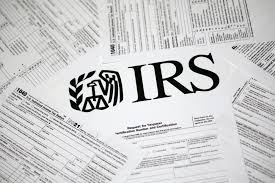The IRS does not initiate a garnishment order without notice. Nor will he knock on your door to take your belongings, without first executing a proper seizure process, in accordance with United States tax law.
It is true that if a taxpayer is late with the payment of their federal taxes, they could face a garnishment by the Internal Revenue Service (IRS). But before that, the tax agency itself will try to avoid garnishment as much as possible. And the taxpayer will have several opportunities to stop the forfeiture attempt.
A process of seizing wages and property for unpaid taxes is very expensive, takes a lot of time and effort. The IRS prefers to use other methods to obtain tax payments.
Here’s what a typical IRS collection process might look like, before you get to consummation of the levy.
First: The IRS will send several written warnings
Before garnishing a taxpayer for non-payment of taxes, the IRS will contact you several times.
He usually does it in writing via regular mail. He rarely uses phone calls. Consider this detail to avoid misleading collections from people who are not from the IRS.
Basically, through these letters the IRS lets you know how much you owe in taxes, and tells you that you are behind on your payments.
This collection process will be repeated for several weeks. During this time the taxpayer has the opportunity to contact the IRS and reach an agreement to settle the debt.
In many cases notices are generated by mistake, if you know that you do not owe taxes, contact the IRS immediately to clarify it.
Second: The IRS will send a final notice before the garnishment
If you continue to fail to pay, or reach a payment agreement with the IRS, then the taxpayer will receive a final notice.
There the IRS notifies you about your garnishment attempt. It will also tell you in that last letter about your right to a hearing to review your case. This happens at least 30 days before the garnishment begins.
The final notice simply tells you that the seizure of your wages or property is coming. But they also offer you one last chance to:
- Make an appeal in court.
- Pay the balance due.
- Ask for a full payment agreement, but for a smaller amount.
- Make an installment payment plan.
- Other action to resolve the matter.
Third: start of the IRS levy
Only after all of these attempts to fix the tax collection can the IRS execute a garnishment.
The taxpayer will get several notifications as long as the IRS has their correct address and can receive their correspondence.
In theory, it is possible that the garnishment would be a surprise, if the taxpayer was not receiving the letters, but it is unlikely. The IRS will make every effort to locate you.
Types of Garnishment to Collect Tax Debt
There are several types of garnishment for unpaid taxes. It is also important to know that a lien and lien are two different situations.
The IRS generally uses the following garnishment procedures:
- Garnishment of wages: In this case the IRS will take a portion of money directly from your salary or paycheck. But the IRS will not ask the taxpayer for payment, it will be the same employer who sends the partial payments each month to the IRS.
- Garnishment of Bank Accounts: The IRS has the right to take back tax payments from your bank accounts directly. This means that the funds in your accounts are frozen from the start of the garnishment. The taxpayer will have 21 days to wait before the start of the measure to achieve a settlement, as indicated by the Internal Revenue Code of federal law.
- Property lien: If the IRS seizes your assets such as a house, car, land, or boat, among other belongings, then you can sell them at auction. First, calculate its value, then subtract expenses or other obligations from the profit from the sale, and use the remaining funds for the overdue tax payment. The taxpayer who owns the property will receive documentation on the sale price, which can be disputed. If there is money left over from the sale of the property, the IRS will tell the taxpayer how to receive that refund.
You should know that even during an active seizure process, the taxpayer has opportunities to stop the forfeiture and save their interests. During these processes, the legal advice of an attorney with experience in tax matters may be convenient for you, to negotiate the best possible agreement with the IRS.



